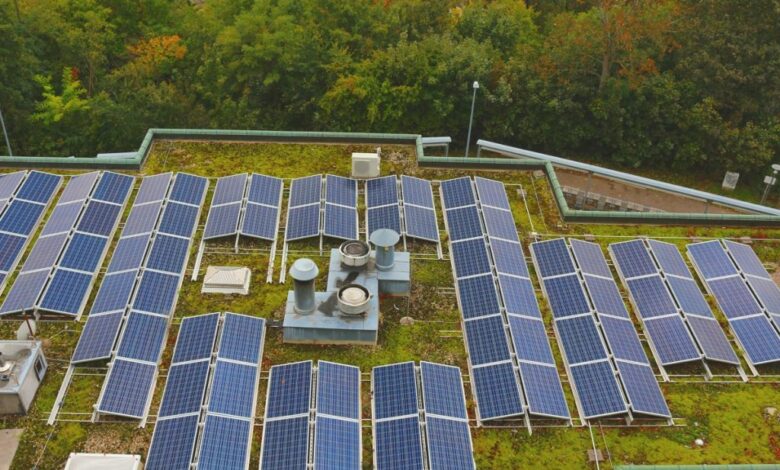How Solar Energy Can Boost Your Startup’s Bottom Line

In the fast-paced world of startups, finding ways to reduce costs and maximize efficiency is critical to success. Many entrepreneurs are now turning to innovative solutions to streamline their operations, with renewable energy emerging as a key player. Solar energy, in particular, offers startups a practical way to achieve sustainability goals while improving their financial outlook. By integrating solar solutions, businesses can reduce operational costs, gain tax benefits, and enhance their reputation. Smart Solar Energy is a leading example of how companies can harness solar power to achieve these objectives. Let’s explore how adopting solar energy can transform your startup’s bottom line.

https://www.pexels.com/photo/blue-solar-panel-board-356036
The Financial Benefits of Solar Energy for Startups
One of the most compelling reasons startups adopt solar energy is the potential for significant cost savings. Traditional energy sources are subject to market fluctuations, often leading to unpredictable utility bills. Solar energy, on the other hand, offers a more stable and usually lower cost over time. Once installed, solar panels generate free energy from the sun, reducing the need to rely on costly grid power. This can lead to noticeable savings, particularly for startups operating in energy-intensive industries.
Additionally, the initial investment in solar panels can be offset through various government incentives and tax credits. Many regions offer programs designed to encourage businesses to adopt renewable energy. These include rebates, grants, and federal tax credits that can significantly reduce the upfront costs of installation. For startups, taking advantage of these programs means freeing up resources that can be reinvested into other growth areas.
Beyond direct cost savings, solar energy can also act as a hedge against future increases in energy prices. With long-term contracts often available for solar system installations, startups can lock in their energy rates and protect themselves from the volatility of the energy market. This financial predictability is invaluable for businesses in their early stages, where budgeting and resource allocation are particularly crucial.
Enhancing Brand Value Through Sustainability
The financial perks of solar energy don’t stop at operational cost savings. Incorporating solar solutions into a business model can also elevate a startup’s brand in the eyes of customers, investors, and employees. Today’s consumers are increasingly drawn to companies that demonstrate environmental responsibility. By switching to solar energy, startups can position themselves as eco-conscious and forward-thinking, appealing to a demographic that values sustainability.
Solar energy adoption can also be a strategic move for startups seeking investor support. Environmental, Social, and Governance (ESG) criteria are becoming a deciding factor for many investors. Companies that integrate renewable energy solutions into their operations are often seen as lower-risk and more innovative, making them attractive investment opportunities. Solar energy thus becomes a cost-cutting measure and a tool for attracting vital funding.
Moreover, a sustainable business model can enhance employee satisfaction and retention. Employees are more likely to feel motivated and proud of their workplace when they see tangible efforts to reduce environmental impact. This can foster a positive work culture and reduce costs associated with high employee turnover, further benefiting the startup’s bottom line.
A Long-Term Investment with Multifaceted Returns
While the initial costs of installing a solar energy system might seem daunting to some startups, it’s essential to view this transition as a long-term investment. Solar panels typically last 20 to 30 years, providing consistent energy savings and contributing to a startup’s financial health. Advances in solar technology and decreasing equipment costs have made solar energy more accessible, making now an ideal time for startups to leap.
Beyond the financial and reputational gains, solar energy also offers startups energy independence. With the integration of battery storage systems, businesses can ensure a steady power supply even during grid outages. This mainly benefits startups in sectors where uninterrupted power is critical, such as tech or manufacturing. Reliable energy translates to uninterrupted operations, safeguarding revenue and enhancing productivity.
Finally, as governments and industries worldwide push for a net-zero future, regulations around carbon emissions are tightening. By adopting solar energy early, startups can stay ahead of potential regulatory requirements, avoiding fines and demonstrating proactive compliance. This foresight saves money and strengthens a startup’s market position as an industry leader.
Conclusion
Adopting solar energy is more than a cost-saving measure—it’s a strategic move that positions startups for long-term success. Solar solutions offer a host of advantages that directly impact the bottom line, from lowering operational expenses and securing tax benefits to enhancing brand value and ensuring energy reliability. Companies like Smart Solar Energy are paving the way for startups to embrace these benefits, proving that sustainability and profitability can go hand in hand. For startups aiming to thrive in today’s competitive landscape, solar energy is not just an option—it’s an essential step toward building a resilient and future-proof business.






